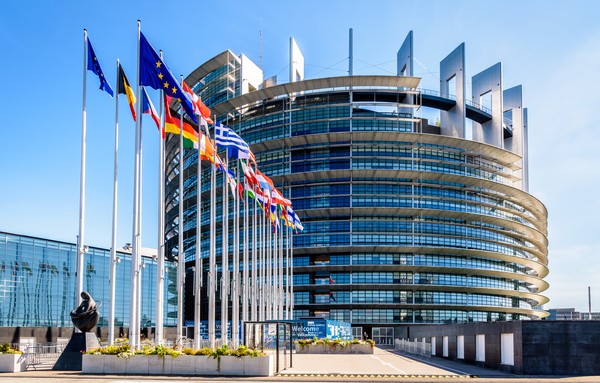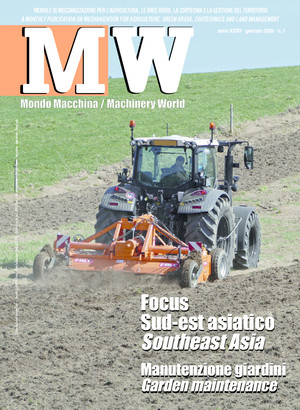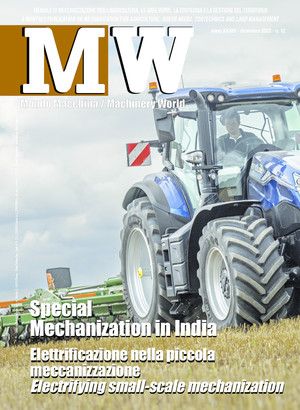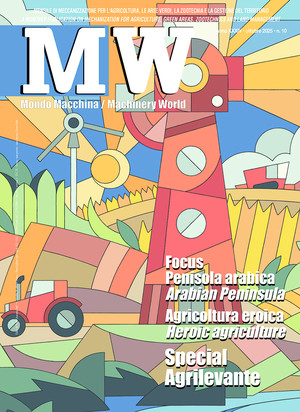
The Commun Agricultural Policy's New Mission
The new document that will guide the sector for the period 2023-2027 has been definitively approved. Measures for income support and interventions for environmental and social sustainability are the key features of the strategic document and enhance the European agricultural model
The European Union has set its stamp on the Common Agricultural Policy that will lead us from 2023 to 2027 under the banner of ensuring income for producers, eco-sustainability and respect for workers' rights. Thanks to a series of measures - and adequate financial resources - that could also positively affect the agricultural machinery sector. After the final green light in the plenary assembly of the EU Parliament, on November 23 in Strasbourg, the three basic regulations of the new CAP will now be published in the EU Official Journal.
2022, the second year of the transitional period in which the sector will still follow the old rules of the CAP 2013-2020, will be used by the Member States to implement the new rules through the National Strategic Plan.
This document is being finalized by the Ministry of Agriculture for Italy these days, and the EU Commission should " release " it within the first six months of next year. In the future CAP, income support for farmers will also remain a priority. It will be combined with reinforced risk management measures and more significant resources for supporting young people and for coupled aid for products facing less favorable market situations, such as tomatoes, beets or rice. Other iconic Made in Italy products, from fruit and vegetables to wine and olive oil, will continue to be promoted through specific sectoral measures. And the system of geographical indications and protection consortia will finally be able to manage product supply and better respond to market fluctuations.
But the future CAP will also aim to make a solid contribution to achieving the Union's objectives with the New Green Deal. A minimum of a quarter of direct aid to the so-called eco-schemes and at least 35% of funds for rural development will be allocated to measures with a high environmental value. The role of the Regions will be fundamental, not to say decisive, as they will be called upon to wisely manage the rules and CAP aid through the measures of the National Strategy calibrated according to the characteristics of their territory.
Moreover, the fight against climate change must go hand in hand with innovation and research. Farmers and professionals, on their part, will have to focus on agronomic practices and the use of production inputs supported by digital tools and alternative energy to fossil fuels. Particularly in a phase like the one we are going through now, characterized by a substantial increase in energy costs that also penalize the entire agri-food chain.
From electrical power to diesel fuel, many means of production put a strain on the accounts of companies. Unfortunately, as we know, this has repercussions on the entire value chain, affecting the citizens' and consumers' pockets. For this reason, I have great confidence in renewable energy, which will create more favorable conditions for farmers as well as for manufacturers of agricultural machinery. In particular, I am referring to biogas and methane. We saw tractors produced and marketed during the last Eima at the Bologna Exhibition that can use methane as traction. This proves that self-sufficiency on farms is not far off and can become a reality.
The next CAP also contains the major novelty of so-called 'social conditionality', i.e., a system aimed at protecting workers' rights on farms. For the first time, a mechanism has been included that will prevent public funds from going to farmers who do not respect the minimum working conditions of their workers without creating any additional administrative burden. In the event that it should be proven that a farmer is in breach of these rules, within the framework of the standard controls carried out by the competent national authorities, the competent authority will have to transfer the information to the paying agency of the Member State, which will apply cuts in CAP payment entitlements. This mechanism will enter into force voluntarily as early as 2023 and be mandatory for all Member States from 2025.








